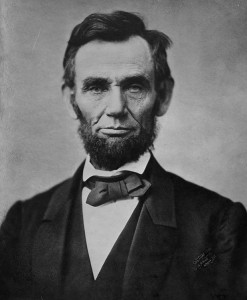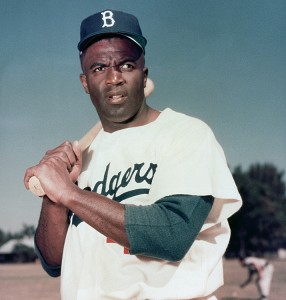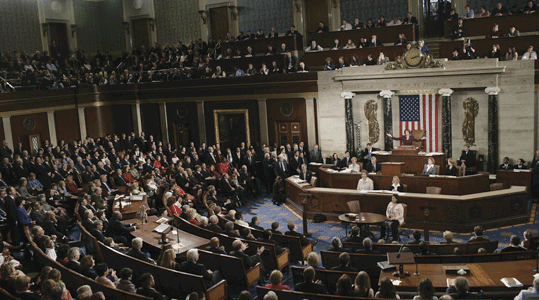On This Day: April 15
Wednesday, April 15th, 2020April 15, 2020
Today, April 15, is an important day on the calendar, and it is known for some momentous events in history. To many people in the United States, April 15 brings to mind taxes, as it is generally the final day income taxes can be filed with the Internal Revenue Service (IRS). Two other April 15 events do not brighten the mood: the U.S. President Abraham Lincoln died on that day in 1865; and the ocean liner Titanic sank on April 15, 1912. But a number of other events, including the births of the artists Henry James and Leonardo da Vinci and Jackie Robinson’s breaking the racial barrier in Major League Baseball (MLB), make April 15 a not altogether gloomy day.

The U.S. President Abraham Lincoln died on April 15, 1865, after being shot by an assassin the night before. Credit: Library of Congress
On the evening of April 14, 1865, President Abraham Lincoln attended a performance of the comedy Our American Cousin at Ford’s Theatre in Washington, D.C. At 10:22 p.m., a shot rang through the crowded house. John Wilkes Booth, a Southern sympathizer and well-known actor, had shot the president in the head from the rear of the presidential box. Lincoln was carried unconscious to a boarding house across the street. The president died there at 7:22 a.m. on April 15.

The “unsinkable” ocean liner Titanic was believed to be the safest ship afloat. But on April 15, 1912, Titanic sank after striking an iceberg. Credit: © AP/Wide World
Just before midnight on April 14, 1912, the British ocean liner RMS (Royal Mail Ship) Titanic struck an iceberg in the North Atlantic Ocean. The disaster occurred on the ship’s maiden (first) voyage from Southampton, England, to New York City. The ship struck the iceberg at about 11:40 p.m. and sank bout two and a half hours later, on April 15. The huge ocean liner broke in half and sank into the icy water, killing more than 1,500 people.
On Feb. 3, 1913, the Sixteenth Amendment to the Constitution of the United States authorized Congress to levy a federal income tax. The amendment allows Congress to levy an income tax on individuals and businesses without dividing it equally among the states or basing it on the U.S. census. The deadline for paying taxes from the previous year was originally March 1, and then March 15. In 1954, to give people a little more time to deal with the often complicated burden, the tax deadline settled on April 15.

Jackie Robinson beame the first African American to play modern Major League Baseball when he debuted for the Brooklyn Dodgers on April 15, 1947. Credit: © MLB Photos/Getty Images
On April 15, 1947, Jackie Robinson played his first game for the Brooklyn Dodgers, becoming the first African American to play in the major leagues since the 1880’s. Robinson’s impact on segregation in sports went far beyond the Dodgers. After baseball desegregated, other professional sports quickly followed, and a number of previously segregated hotels and restaurants began to admit blacks.
Aside from Leonardo da Vinci (1452) and Henry James (1843), notable April 15 birthdays include the U.S. painter Charles Willson Peale (1741); the U.S. Blues singer Bessie Smith (1894); the first African American mayor of Chicago, Harold Washington (1922); the Puerto Rican singer Luis Fonsi (1978); the Canadian-American actor Seth Rogan (1982); and the British actress Emma Watson (1990).




